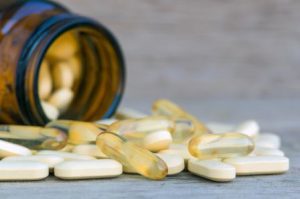by Jen Johnston, CHHC, senior marketing services account manager
If you think that dietary supplements are only for those “hippie types,” think again. Seventy-one percent of U.S. adults take dietary supplements according a survey conducted by Ipsos Public Affairs on behalf of the Council for Responsible Nutrition (CRN). That’s almost three-quarters of your shoppers.
There are many reasons shoppers use supplements, including lowering cholesterol, shortening the duration of colds, improving memory or energy levels, reducing pain, losing weight, and protecting vision.
Unfortunately, many consumers learn about supplements from well-meaning family members, friends, or internet websites, not clinical sources. Those that ingest supplements without talking to a pharmacist or doctor can suffer devastating consequences due to improper dosing and interactions with drugs or other supplements. And it happens more than you might think. A study published in the Journal of Medical Toxicology finds that U.S. Poison Control Centers receive a call every 24 minutes, on average, regarding exposures to dietary supplements. Imagine how many more incidents go unreported.
Many people think that because supplements are often derived from natural sources, they must be safe, but they can negatively interact with prescription and OTC drugs. Only one-third of supplement users disclose their use to conventional medical professionals, such as pharmacists. And pharmacists aren’t off the hook either – a U.S. national survey found that only 7% of pharmacists actually add herbs to their patients' profiles. What other types of supplements are pharmacists neglecting to add?
Clearly, you’re in the right position to help your patients make good supplement choices. In order to prevent bothersome or dangerous drug-supplement interactions, take a proactive approach to identifying and documenting your patients’ use of dietary supplements. Asking the right questions will help consumers understand that just because some herbs and supplements are natural, it does not always mean they are safe.

